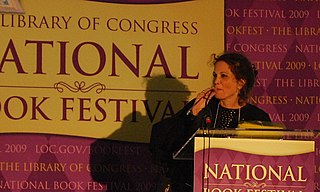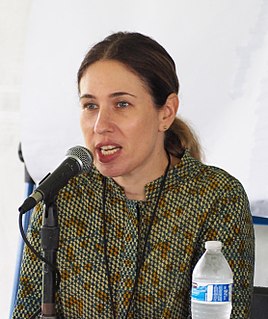A Quote by James Fenton
What I want, when I write a poem, is no more than this: that it be preserved in some published form so that, in principle, someone, somewhere, will be able to find it and read it. That is all I need, as a poet, and that is the beauty, the luxury of my position. My lyric is mine and remains mine. Nobody can ruin it.
Related Quotes
I know that in a poem, even when the speaker is speaking from the poet's experience, there's always something that's borrowed, some authority that sits outside of the poet that the poem has claimed. There's a dramatic pitch that makes the speaker capable of saying something more courageous or stranger or simply other than what the poet would be able to say.
I have taught the long poem off and on for years. The more book-length poems I read and studied and taught the more interested I was in the possibilities in writing a poetry that applied formal and substantive options of narrative and non-narrative, lyric and non-lyric. I found many pleasures in this kind of writing. The long poem is as old as the art form.
My first advice would be to read, read, read, which sounds interesting coming in a digital age, but it's so much easier to listen to a poem than it is to sit down and actually read it and to hear it in your head and that is something that every poet or aspiring poet needs to be able to do, I think to hear it in their head.
For me, the writing life doesn't just happen when I sit at the writing desk. It is a life lived with a centering principle, and mine is this: that I will pay close attention to this world I find myself in. 'My heart keeps open house,' was the way the poet Theodore Roethke put it in a poem. And rendering in language what one sees through the opened windows and doors of that house is a way of bearing witness to the mystery of what it is to be alive in this world.
No one can threaten poetry. It's always been there, always will be. Humans need it to live: it has sustaining powers. How could we (anyone) get through adolescence without some form of song? Song is only a version of lyric poetry that is carried more by melody than by internal coherence and unity. but lyric and song - they are the same.
I write with the idea that nobody will care about what I've written; I publish with the idea that nobody will care either. Which is why every time somebody cares enough to read a novel of mine, or respond to it - a reader, a reviewer, even my own editor - I'm a little bit amazed, and so hugely grateful.
When you work in form, be it a sonnet or villanelle or whatever, the form is there and you have to fill it. And you have to find how to make that form say what you want to say. But what you find, always--I think any poet who's worked in form will agree with me--is that the form leads you to what you want to say.
I need not ask whether I may call on Him or not, for that word 'Whosoever' is a very wide and comprehensive one...My case is urgent, and I do not see how I am to be delivered; but this is no business of mine. He who makes the promise will find ways and means of keeping it. It is mine to obey His commands; it is not mine to direct His counsels. I am His servant, not His solicitor. I call upon Him, and He will deliver.
I started out in graduate school to be a fiction writer. I thought I wanted to write short stories. I started writing poems at that point only because a friend of mine dared me to write a poem. And I took the dare because I was convinced that I couldn't write a good poem... And then it actually wasn't so bad.







































